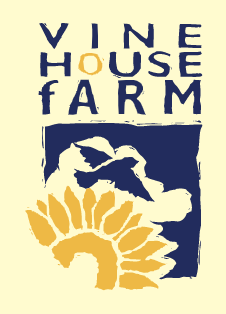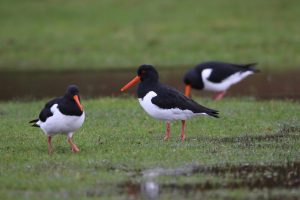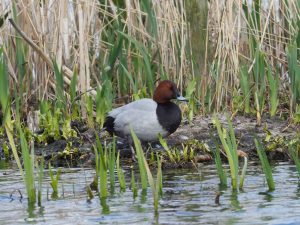
February has been a mild month, with less sun, rain and wind than average until the last few days when the wind has been blowing. Of the last 47 Februarys, we have had ten that were warmer than this February, with seven of those in the last 20 years. With there being less sunshine and less wind than usual, it has seemed a wet month. If we’d had the normal amounts of sun and wind, there would have been a lot more evaporation, even the concrete has been damp for days.

We have been busy loading wheat, rape and potatoes since Christmas – we try and organise a lot of our sales when we know we won’t be sowing and planting.
Wheat and rape prices have increased and the thoughts of the experts – I mean the grain traders, not the politicians – is that Brexit will not affect the average farmer too much. Up to now, Brexit has been a good thing because the pound has dropped in value which has, in effect, increased our price of grain. However, what all farmers are wondering about is the single farm payment – the amount of money we get paid for being a farmer, and of course, every farmer in the EU gets this payment. If farmers receive the single farm payment, amongst other things they must abide by a number of rules that benefit the environment. We also receive direct payments for land we have taken out of production and put into environmental schemes. Our worry is, that if these payments are not replaced in some way when we leave the EU, it will be detrimental to the environment.
The new flock of hens have been with us now for more than a month. They started laying around 18th February and by 28th February we were getting about 9,000 eggs per day from 24,000 birds. We expect that to increase to over 22,000 eggs per day. Attention to detail is very important at this stage of the chicken’s life, hens like somewhere quiet and secluded to lay their eggs, so we provide nest boxes. Some hens will try to find a quiet place in a corner on the ground to lay, so we regularly walk round the hen house so that the only quiet secluded places are in the nest boxes. The nest box is quite comfortable and slopes down to a conveyor belt. So when the egg has been laid, it rolls down to a conveyor belt which takes all the eggs to the packing trays. The avian flu has been very much in the press – so far we have been lucky and the restrictions have not affected us, unlike other farmers. These restrictions mean hens can’t be let out in certain areas of the country where outbreaks have been detected. After a certain number of weeks, this could mean the hens, and their eggs, could no longer be considered as free range.
Our free range egg supply began about 15 years ago, when my eldest daughter Joanna, and son-in-law Robert, fancied keeping some hens. They purchased a hut and about 300 free ranging hens. The hens needed to be shut up every night and let out every morning, then the eggs needed collecting and some needed washing. Having costed out their project, they found that they were making a loss. To make any profit they would need to have a bigger flock, with automatic egg collection, an automatic feeding system and a fox proof fence. So we now have 24,000 free range hens.
Spring is definitely on its way, Spalding is a very important area for daffodil growing, and daffodils are now being picked by hand in the local area. This harvest will continue for two further months.


Our third winter bird watch was on the 25th February where we again saw 40 species of birds. This included two pairs of Grey Partridge, a Sparrowhawk, 200 Tree Sparrows and 600 Chaffinches. When I total up how many species we have seen on the farm this winter, it comes to 75 species.
There are definitely signs of spring all around us now, Song Thrushes, Chaffinches and Great Tits have been singing here. Snowdrops and aconites will soon be over and the first wildflower that I noticed, coltsfoot, is well out now.
Tree Sparrows have been quietly building nests for the past two months and most of the 170 nest boxes that we have up, now contain nesting material.
We have been seeing a few Barn Owls flying after daybreak some mornings, but that is quite normal for this time of year. We just need a normal spring, so that the voles get breeding to supply the Owls with food.
Fieldfares are on their way back east, they are calling in on our wildflower meadows and, where I am feeding other birds, we see up to 300 of them some days.
February is normally a quiet month as far as bird watching is concerned, but this year has been busy with many rare birds around locally. The star of last month was the Bluethroat at Willow Tree Fen Nature Reserve, a Lincolnshire Wildlife Trust Reserve, four miles west of Spalding. A little bird related to the Robin but with a blue throat. It has been very tame and more than 5,000 bird watchers have been to see it. As of 1st March it was still seen at Willow Tree Fen. Bluethroats breed on the continent including Holland but seldom venture to the UK in the spring. Another bird related to the Robin is the Stonechat and there have been a pair wintering not far down the farm here. They have stayed here because we have an area of last years vegetation still standing and a heap of poultry manure nearby providing insects that they eat.
Other birds that have been seen locally on the Welland are a Great White Egret, a Great Grey Shrike, a Long Tailed Duck, a Scaup and three Long Eared Owls at Deeping Lakes.
We now have a range of feeders that Rooks, Jackdaws and Pigeons cannot feed from. They come into gardens at this time of year because food is not very plentiful out there in the spring. All of last year’s harvest has been eaten up and of course, if there was a free restaurant in town you would probably go and try it. The Rooks and Jackdaws are quick learners and may well persist in your garden until late Spring. We have also introduced a cage to deter Parakeets from feeders. Parakeets have become a big pest to many in the South East of the country. They seem to arrive in flocks and scare many of the smaller birds away.
Talks and Events
Tuesday 11th April
Pinchbeck Village Hall 7pm
I will be giving a talk about feeding garden birds. All are welcome, the entrance fee is just £1.50 with all proceeds going to Lincolnshire Wildlife Trust
Tuesday 4th April
St Wilfred’s Church Hall, Alford
I will be giving a talk on farming and wildlife, for the Alford area group of the Lincolnshire Wildlife trust. All proceeds will go to the Lincolnshire Wildlife Trust



